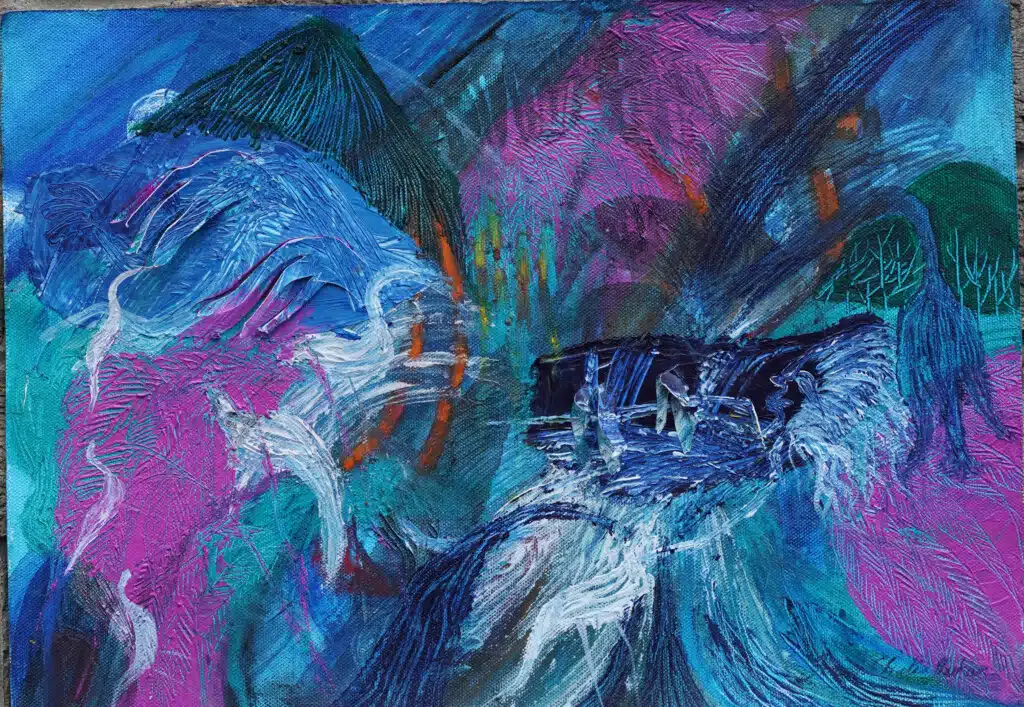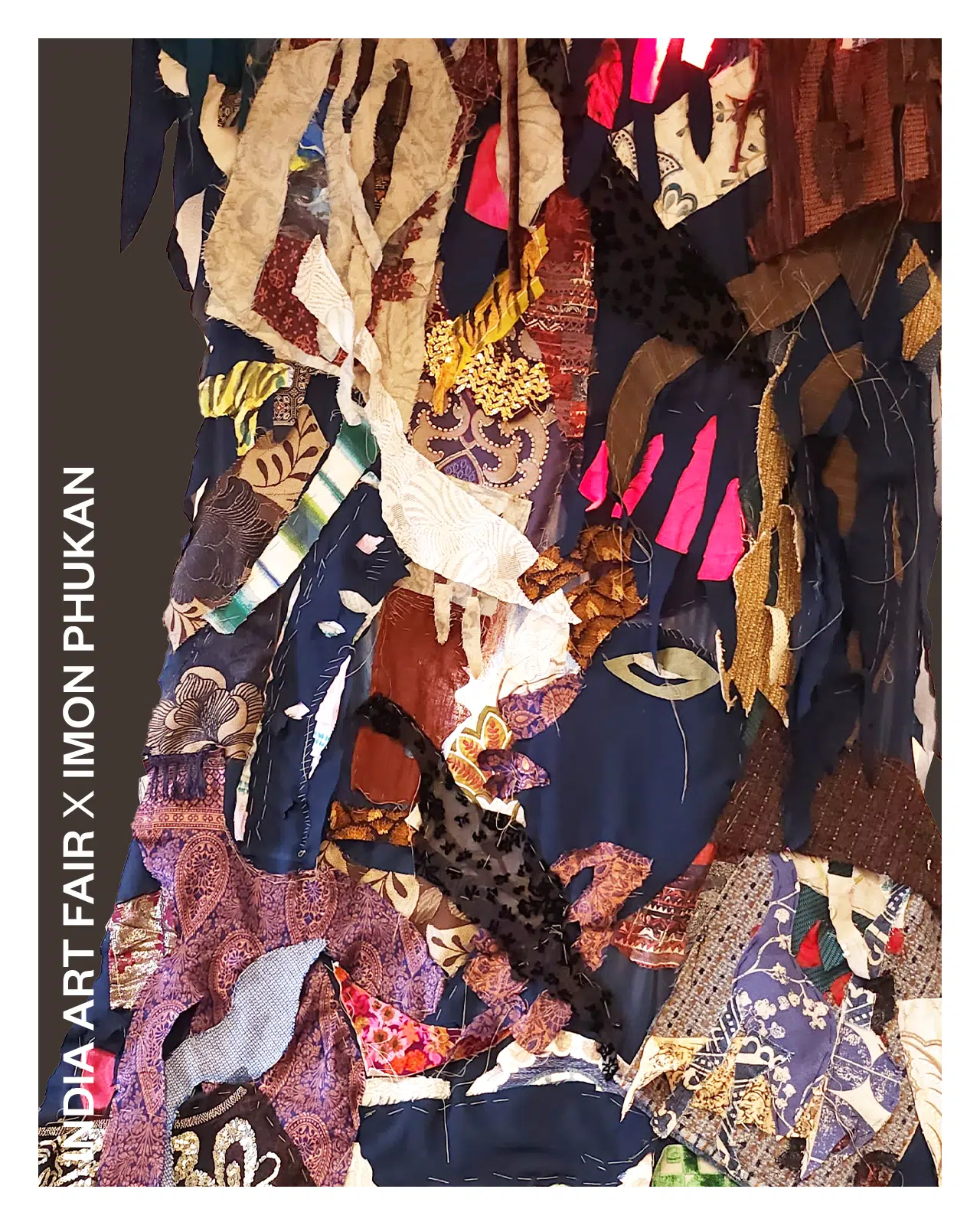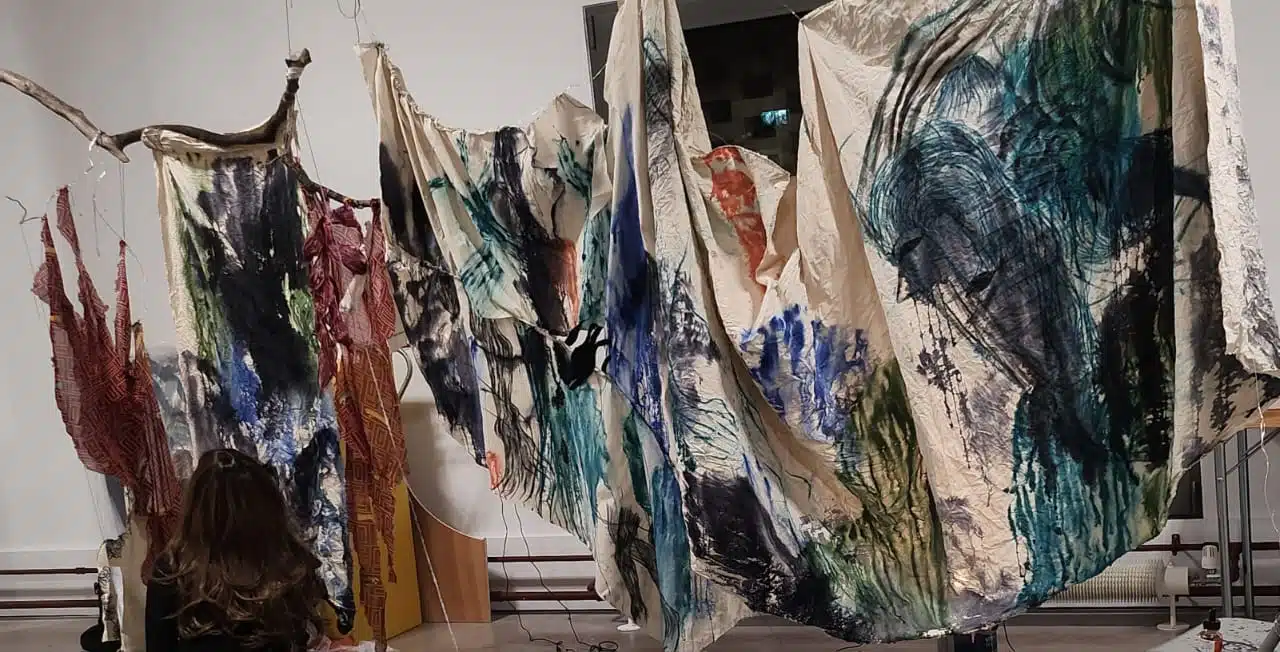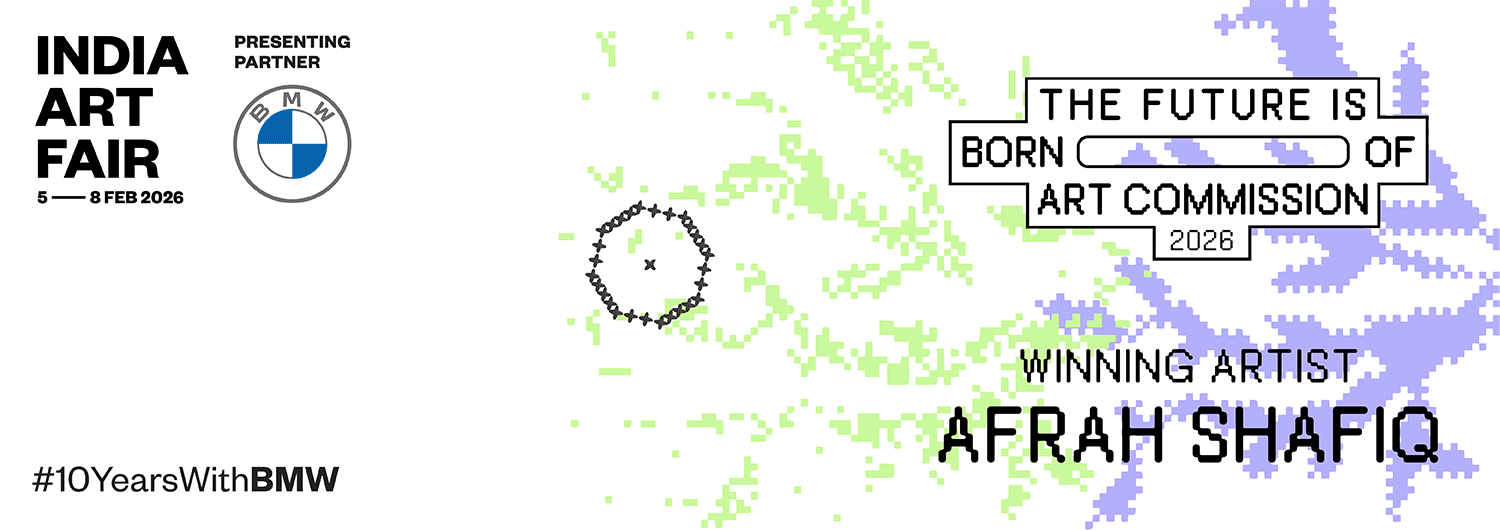Imon Phukan’s art offers a visceral exploration of belonging, identity, and the intricate ties between humans and their environments. Hailing from the lush hills of Guwahati, Assam and now based between London and India, Phukan’s practice combines textiles, painting, and performance to create immersive, sensory-rich installations. Her work for India Art Fair 2025’s Artists in Residence programme is an invitation to step into her world—a world informed by migration, cultural hybridity and the silence of unresolved conversations.
Phukan describes her practice as “an experience through an unknown forest.” Her installations reflect a delicate balance between intuitive creation and planned design, where vibrant colours, layered textiles and gestural markings evoke a sense of mystery and discovery. “My inner world is large and unpredictable,” she says, noting how nature plays a central role in inspiring her. For Phukan, the forest is both a literal memory of her childhood in Guwahati and a metaphorical space of belonging amidst chaos and transition.
 Phukan’s working process is deeply personal and ritualistic. She describes her studio as a space where works “rest” rather than take shape. Moments of stillness in her daily routine, such as watering plants or walks by the riverside, ground the creative flow. Her working methods are varied—stitching during the quieter hours of the day, painting late at night, or scribbling dreams on a sketchpad kept beside her bed. These practices converge into what she calls an “intuitive mix and overlayers,” where moments of chance and experimentation transform her art.
Phukan’s working process is deeply personal and ritualistic. She describes her studio as a space where works “rest” rather than take shape. Moments of stillness in her daily routine, such as watering plants or walks by the riverside, ground the creative flow. Her working methods are varied—stitching during the quieter hours of the day, painting late at night, or scribbling dreams on a sketchpad kept beside her bed. These practices converge into what she calls an “intuitive mix and overlayers,” where moments of chance and experimentation transform her art.
She reflects, “Creativity doesn’t happen only inside an enclosed studio space. It’s in the rituals and accidents.” For example, an accidentally mixed colour or an unexpected texture during her stitching process can reshape an entire composition. Her textile works, informed by tactile memories of fabrics worn in her childhood home, are layered with personal and cultural narratives, offering viewers a portal into her world.
Central to Phukan’s work are themes of migration and identity. Having moved frequently—from Assam to Gujarat, and later to London—her art often examines the tension between the familiar and the unknown. This is evident in her recurring use of forest imagery, which she says symbolises both her homeland, and the “mysteriousness of unspoken influences” gauged from her observations of people.
“Everything in nature is connected—from galaxies to the tallest trees to the tiniest mushrooms.”
Informed by her lived experiences, Phukan captures moments of silence and loss, particularly those stemming from personal grief. She recalls the transformative period following her father’s passing, during which she stared for hours at the green mountains outside her home. These moments of mourning shaped her understanding of interconnectedness. “We always go back to nature,” she notes. “Everything in nature is connected—from galaxies to the tallest trees to the tiniest mushrooms.”
This philosophy translates into her sculptural tapestries and paintings, where recurring motifs of soil, air, and fire create a “society of forests.” Her works explore the unresolved, the in-between spaces of acceptance and letting go. Through repetitive movements and layering, she mends not just fabric but also the broken threads of memory and identity.
Phukan’s art draws from diverse influences—folk stories shared by her grandmother, textiles from her northeastern roots, and the poetry of Stevie Smith and Alexander Pope. These inspirations infuse her works with emotional and historical depth. For instance, her performance piece Prana, which involved painting her body, explored the continuum between history and the present.
Her ongoing series, Wild Thoughts and Wild Child, delves into the “mysterious reality behind innocent appearances,” a concept inspired by Smith’s poetry. She describes her fascination with the intangible, likening her creative process to stitching together fragments of dreams, conversations, and forgotten memories.
DOWNLOAD A SPECIAL ARTIST POSTER >

As part of India Art Fair Delhi 2025’s Artist-in-Residence programme, Phukan continues to push the boundaries of her practice. For the upcoming edition of the Fair, she is working on a brand-new hand-stitched textile installation to be presented in partnership with the Royal College of Art. Her works weave together the personal and the universal, offering reflections on the shared human experience of loss, resilience and interconnectedness.
Through her immersive installations, she invites audiences to step into her “forest,” where layers of colour, texture, and meaning come alive. Whether through a vibrant textile tapestry or a hauntingly gestural painting, Phukan’s art is a testament to the power of creativity to mend, transform and connect.
Imon Phukan was born in Assam in 2000 and currently lives in London. Her work will be shown at India Art Fair Delhi 2025 as part of its Artist-in-Residence programme.



